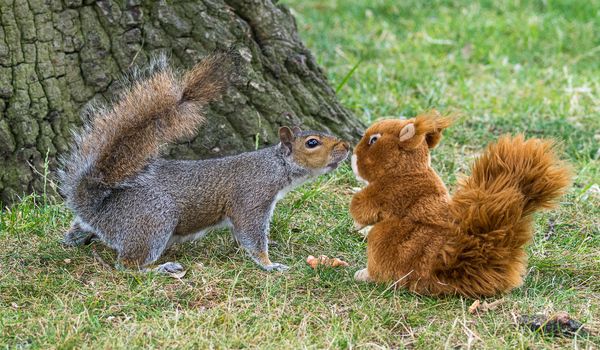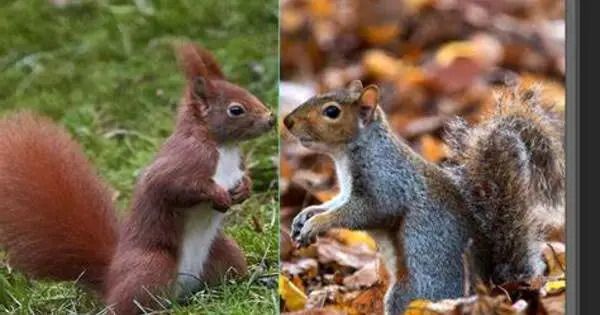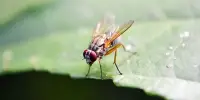In a first-of-its-kind study, researchers discovered significant differences in gut bacteria diversity between grey squirrels and red squirrels, which could hold the key to better understanding grey squirrels’ ability to outcompete red squirrels in the UK.
A new study published in the Journal of Medical Microbiology aimed to learn more about the methods by which grey squirrels obtain an advantage over red squirrels. Chris Nichols, Conservation Evidence Manager at the Woodland Trust and co-author of the report, said:
“The more we know about grey squirrels, the more equipped we’re going to be in the future to tackle the threats they pose to red squirrels and our native trees, which is one of the biggest problems for forest conservation in the UK.”
More research needs to be done to further understand the relationship between red and grey squirrels and their gut microbiota, but perhaps in the future, we could develop this research into methods that could promote healthy gut bacteria in red squirrels or new ways of preventing squirrels from damaging trees.
Chris Nichols
Grey squirrels are an invasive, non-native species that spread from North America to Great Britain and Ireland between 1876 and 1929. They outcompete native red squirrels and multiply due to a variety of characteristics, including their capacity to access a wider range of food sources, including the bark of UK broadleaved trees. This causes substantial damage to the trees and was not previously known.
To discover more about what gives grey squirrels an advantage over red squirrels, researchers from the Woodland Trust, the University of Surrey, the University of Bangor, and the Animal and Plant Health Agency examined the gut microbiome of both species. The diversity and quantity of microorganisms that comprise the gut microbiota (microbes that live in a specific environment, in this case, the squirrel gut) are frequently indicators of an individual’s nutrition, health, and immunity.
Researchers sampled bacterial DNA from the gut contents of red and grey squirrels and performed DNA sequencing to identify the bacterial groups present in the two species. They then compared the results to identify any key differences. They found significant differences in the diversity of gut bacteria between the two types of squirrels, with grey squirrels having a more diverse range of microbiota in their gut.

Lead author of the study Professor Roberto La Ragione, Professor of Veterinary Microbiology and Pathology at the University of Surrey, explained: “Red squirrels are now an endangered species in the UK. Not only are grey squirrels larger and more robust than red squirrels, we have now identified a significant difference in their gut bacterial microbiota, potentially giving them another advantage over reds.”
This enhanced variety in grey squirrel gut microbiota may suggest better overall health and immunity than red squirrels. It could possibly reflect the grey squirrel’s broader diet, but most importantly, the difference between the two sample groups provides researchers with critical information on how grey squirrels gain access to a wider range of resources.
Researchers also discovered oxalate-degrading bacteria in grey squirrel intestines, indicating that they can digest calcium from tree bark, which could explain the grey squirrels’ destructive bark-stripping behavior.
As this research was a sample of only UK red squirrels researchers hope that future research could look to mapping the gut microbiota of other native red squirrel populations across Europe to understand more.
Chris Nichols feels enthusiastic about the ramifications of these discoveries. “More research needs to be done to further understand the relationship between red and grey squirrels and their gut microbiota, but perhaps in the future we could develop this research into methods that could promote healthy gut bacteria in red squirrels or new ways of preventing squirrels from damaging trees.”
Professor Ian Brown OBE, Director of Scientific Services at the Animal and Plant Health Agency, stated, “These findings will help further our understanding of the impact grey squirrels have on the UK’s red squirrel population and our vitally important trees and forests, which will help us understand how to best protect them in the future. I am proud of APHA’s important work on this issue in partnership with the Microbiology Society, Woodland Trust, University of Bangor, and the University of Surrey.”
















